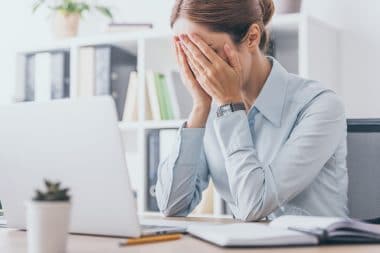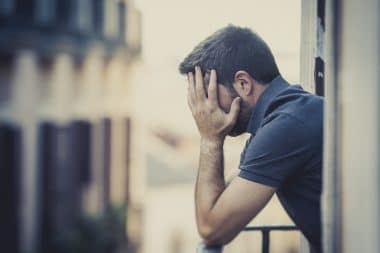Anxiety has a way of sneaking up on you until it feels as if every situation contains a problem or threat. Dealing with everyday anxiety can lead to a variety of health issues and problems with interpersonal relationships. If you are one of the many people who prefer not to go on prescription medications, you may be interested in the variety of natural ways you can treat you anxiety symptoms without harsh side effects.
Recognizing Your Anxiety
The first step in creating a calmer, more controlled state of mind is to understand how anxiety is affecting your life. Anxiety is more than the simple nervousness and worry that comes and goes with everyday life. Chronic anxiety can cause depressed breathing, stomach problems, headaches and a general feeling of being unwell. It can lead to panic attacks, social anxiety, sleep problems and a crippling feeling of being overwhelmed. Managing everyday anxiety can help you to feel more relaxed, healthier and more confident.
Chamomile
Chamomile has been used in many cultures for thousands of years to calm anxiety and induce sleep. The herb has traditionally been used a tea, steeped for several minutes to infuse the liquid. It is also available as a capsule in doses of 400 milligrams to 1600 milligrams, taken daily. Chamomile is generally considered to be safe for consumption. You should consult your physician before taking chamomile with other drugs or other supplements.
Lavender
Lavender is another herb that has been used for thousands of years to produce a sense of calm. Researchers believe it is the oil in this common plant flower that helps to reduce serum cortisol, a major component in the body’s reaction to stress. Taking an oral capsule of lavender oil over a period of week can effectively reduce chronic anxiety symptoms. Keep scented cologne, potpourri or soaps on hand to inhale the scent throughout the day, and you will notice a detectable reduction in anxiety levels.
Passionflower
Another herb used to calm anxiety is passionflower. This flower is believed to raise the levels of gamma aminobutyric acid (GABA) in the brain, which calms brain cell activity and reduces anxiety. Passionflower is generally used as a tea or liquid extract. Consult your physician to ensure that taking passionflower will not interact with other medications you are taking.
Omega-3 Fatty Acids
Researchers are learning that anxiety is often produced by an inflammatory condition in the brain. Reducing inflammation can help to reduce anxiety symptoms and help individuals maintain a feeling of calm. Omega-3 fatty acids in the diet appear to have a significant effect on anxiety levels. Increasing the amount of omega-3 fatty acids in your diet can have a beneficial chemical effect on inflammation and anxiety symptoms. Foods rich in omega-3 fatty acids include oily fish, such as salmon, halibut and tuna; nuts; and leafy, green vegetables.
Exercise
Exercise is known to have significant anxiety-reducing effects that should be implemented whenever individuals experience telltale symptoms. Twenty-one minutes of exercise can have a beneficial effect on heart rate and blood pressure. Exercise releases calming neurotransmitter chemicals in the brain that reduces symptoms and increases the feeling of well being. Even a short walk on your lunch hour or break can have a dramatic effect on your ability to cope with anxiety.
Meditation
Ancient Asian cultures have used meditation for thousands of years to calm anxiety and produce a feeling of well being. Meditation can be learned, with practice, from a local class or DVD. The method requires only a few essentials, such as a quiet room, comfortable seating and a few minutes of concentration. Thoughts are allowed to roam freely until a state of less activity descends. Then, the practitioner allows the both the body and mind to enter a state of restfulness, holding the feeling for a period of a few minutes, or longer, if convenient. Gradually, the individual releases the feeling of peace and returns to regular activities, feeling refreshed and serene. Meditation can be used throughout the day to reduce feelings of anxiety and produce a feeling of greater calm for daily work activities.
Breathing Exercise
Regulating your breathing can have an immediate effect on your anxiety level. You may not realize how shallow your breathing becomes when you are tense and under pressure. This lack of oxygen can make you feel even less able to think and cope with the situation. Deep breathing provides more oxygen to the brain, muscles and nerves, resulting in an immediate sense of relaxation and calm. Whenever you are anxious, monitor your breathing levels. Take long, deep relaxing breaths, feeling the air entering your nostrils and lungs and gently releasing it. These exercises can quickly help to reduce anxiety.
Communing With Nature
The Japanese have a term for that feeling of relaxation and calm that occurs when walking in a natural area, such as a forest, park or other green space. They call it a “forest bath,” and in fact, it produces many of the same effects on the body as a warm bath. The increased oxygen levels and separation from the noise and bustle provides a calming effect for anyone who experiences anxiety during their day.
If feelings of anxiety are a familiar part of your daily life, try these natural ways of dealing with tension. You will achieve a renewed sense of control that helps you to be more productive and happier in spirit.








Reply